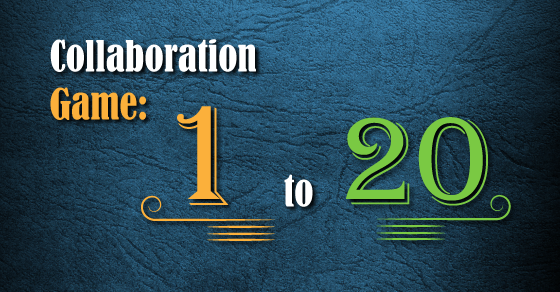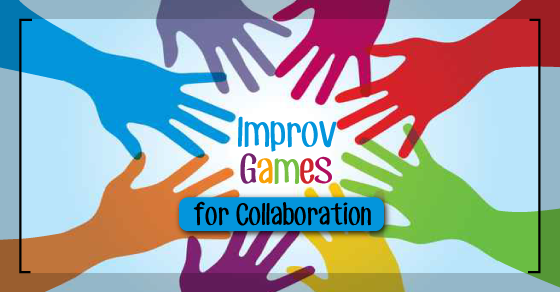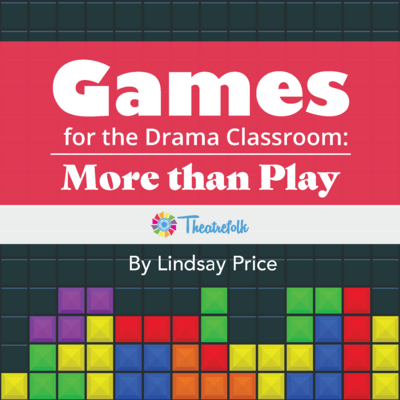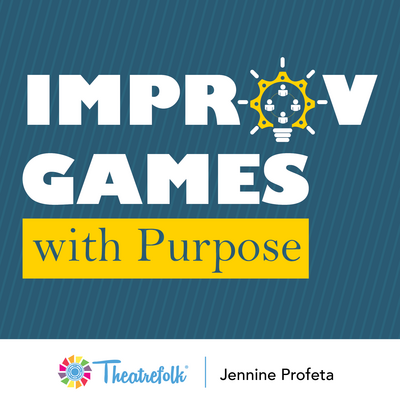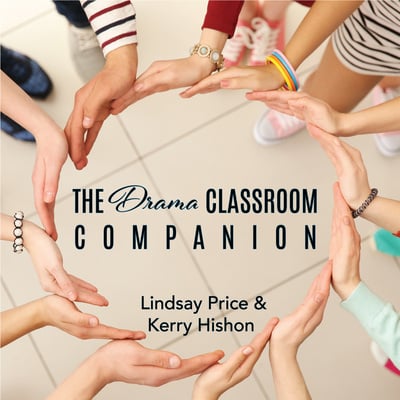Collaboration Games: One To Twenty
Todd Espeland, instructor of the Drama Teacher Academy course Serious Play: Theatre Games and Warm Ups for Rehearsal and Ensemble Building, includes the game One To Twenty as among his favourite. This game encourages students to think as a group.
One to Twenty Game
With One to Twenty, you want everybody to be in a circle. You want them to be in a close circle, not quite touching each other but almost. If you have a really good ensemble of actors who trust each other and enjoy working with each other, have them get in close and maybe even be touching shoulder to shoulder. You want your students focused and quiet.
Encourage students to inhale and exhale and just focus on their breathing. You may even tell the group, “Everybody, inhale and exhale,” and they’ll all breathe together as one unit.
One to Twenty works like this. The group is going to count from one to twenty together. However, there is no order in which they are going to say the numbers. There is no gimmick with which they will say the numbers. Somebody needs to say a number and, when the space is open for the next person to say a number – it could be immediately, it could be five minutes – but when there is a space to say the next number with quiet and attention, the next person will say “two,” “three,” “four.”
If two people say the same number at the same time or speak at the same time, you have to stop and go back to one. The purpose of the game is to listen to the silence and the quality of the silence and find out when it is your turn or where there is an opening where no one else is going to speak in order to say the next number.
Students want to win. Actors want to win. They want to get gimmicky with this. Somebody will say “one” and somebody thinks they’re clever and they want to get to twenty and will come right in on the heels of the person who says “one” and go “two.” Technically, that’s right, but they’re trying to win and not listen for when it is their opportunity to speak.
One of the ways you can bring the group together to listen to each other is, before you begin playing, have them take three or four easy, gentle breaths together. Then encourage them to just be quiet and listen to the quality of the silence. I know this sounds ooky spooky but go with me on this – you can actually feel the silence. It’s just a subtle thing. We can hear the breath or the inhale from when somebody wants to then talk. We can sense all of these subtle nuances in physical behavior before we engage in action. We want to get the students used to listening to those subtle little nuances of our partner’s bodies and physicality before they can speak.
The goal of the game really is to listen and to take your time and not be in a rush to get to twenty.
After they’ve taken some breaths and you’ve asked them just to listen, tell them to begin. If there’s a particularly long silence, tell them that it’s good that they’re just listening. If you can sense people trying to rush in or gimmick the game, tell them to just relax and breathe and listen for their opportunity to speak. This is a really good game for building ensemble and for building outward focus and outward awareness of what’s going on around them.
All too often, as actors, we think we must be doing something constantly on-stage. We feel the need to make something happen, or to be dramatic or worth watching. Sometimes, the doing that we need to do is just to be quiet and focus and listen rather than planning or loading what we’re going to say to our partners or how we’re going to react to our partners. Listen to what they do and then react off of what they’ve done by really listening to them.
It’s a very small, quiet game that can be a little frustrating for some students because they want to win. They want to get to the end. They want to succeed. It may take a couple of times in your rehearsal for this to start to click with the students. Even if it’s not 100 percent successful when you do it, that’s okay; the students are learning to listen. The actors are learning to pay attention.
So you, as the teacher, also need to take your time and just listen and allow things to be and accept the reality of how the game is going.
Related Articles
Games for the Drama Classroom: More Than Play
by Lindsay Price
A collection of games and activities that go well beyond the notion of "play."
Improv Games with Purpose
by Jennine Profeta
Improv games including feedback suggestions and questions, game variations, teaching tips, side coaching tips, entry prompts, exit slip questions, and more!
The Drama Classroom Companion
by Lindsay Price & Kerry Hishon
The Drama Classroom Companion is filled with articles and exercises to build the skills needed for theatrical performance as well as real world skills like creative thinking, critical thinking, collaboration, and communication.
The Rehearsal Companion
by Kerry Hishon
You’ve chosen the play, paid the royalties, done the script analysis, held your auditions, and cast the show. Tomorrow is the first rehearsal. Are you ready? Really ready? The Rehearsal Companion can help!
